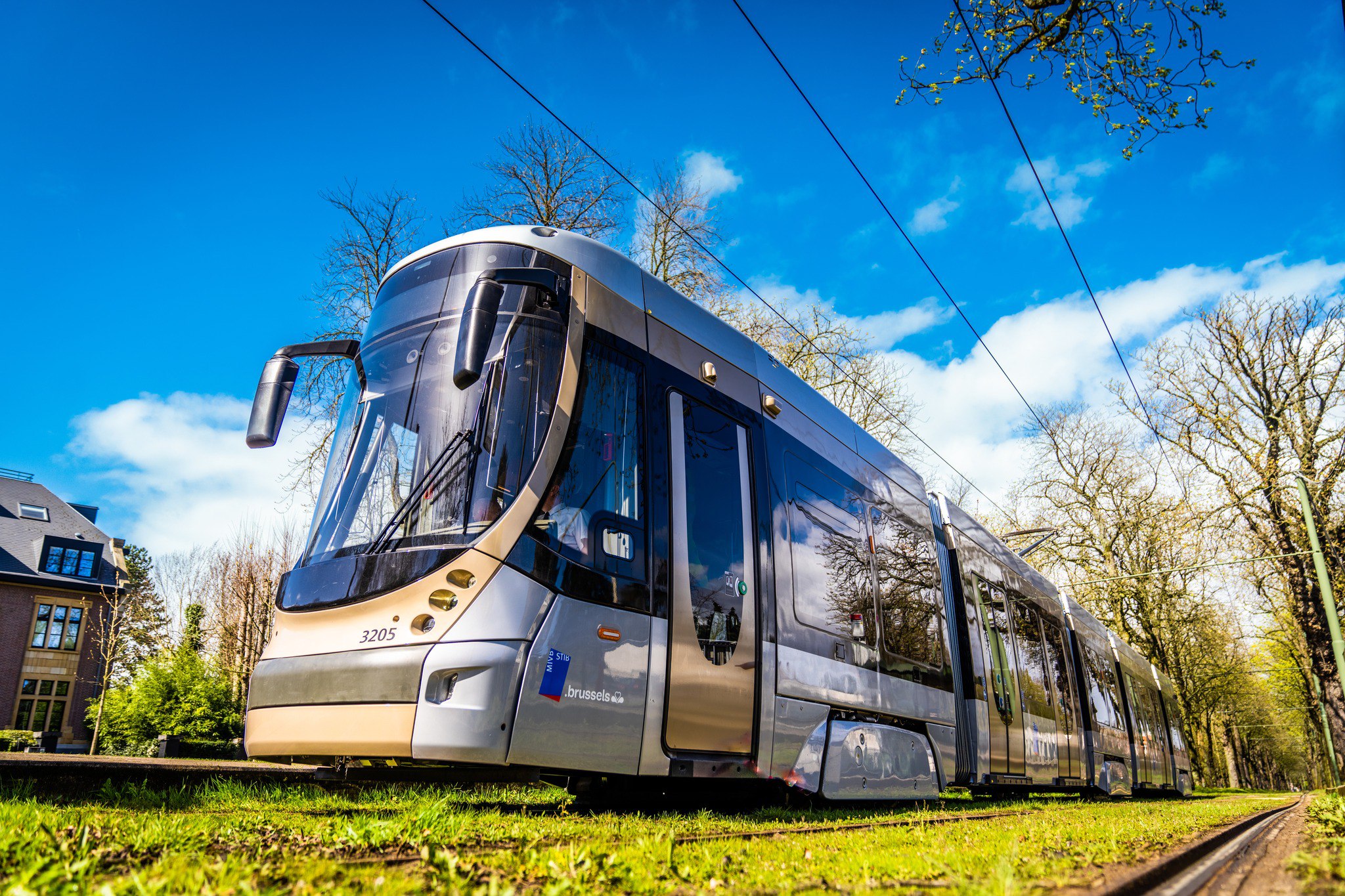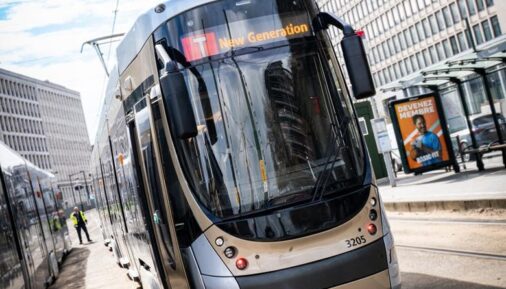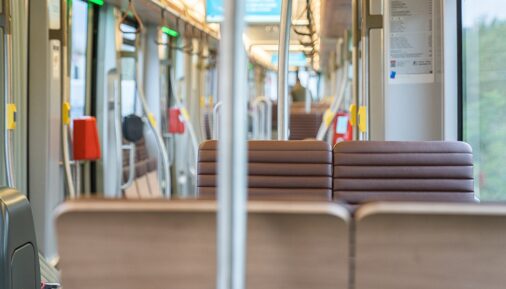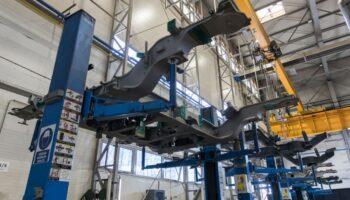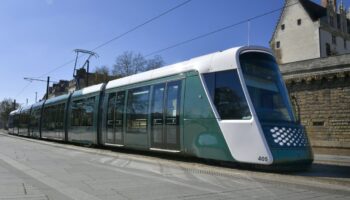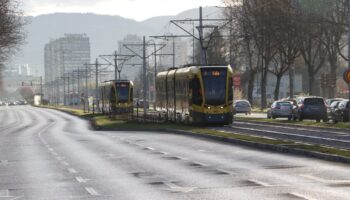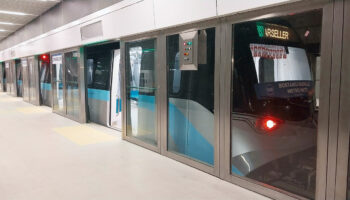Belgium: Currently only one tram has started operating on a line. Alstom is to deliver the whole ordered fleet of 90 trams to the country’s capital by 2026.
TNG trams (Tram New Generation) are a further development of the Flexity Outlook platform. The French manufacturer received the rights on it after taking over Bombardier Transportation in 2021. The design of TNG included the operating experience of the previous generation of Flexity trams, running in Brussels since 2005.
The new trams have improved interior compared to currently operating Flexity vehicles. There are more comfortable seating arrangements and two multifunctional areas for bicycles, prams and wheelchairs. The interior is equipped with information screens, indirect LED lighting, and an upgraded air conditioning system. In order to improve safety, the cars have additional cameras and sensors that detect people appearing in dead zones. Also, there are soft elements located in the front part to reduce the consequences of crashes with pedestrians and cars. The FLEXX Urban 3000 bogies have been upgraded to improve travelling comfort.
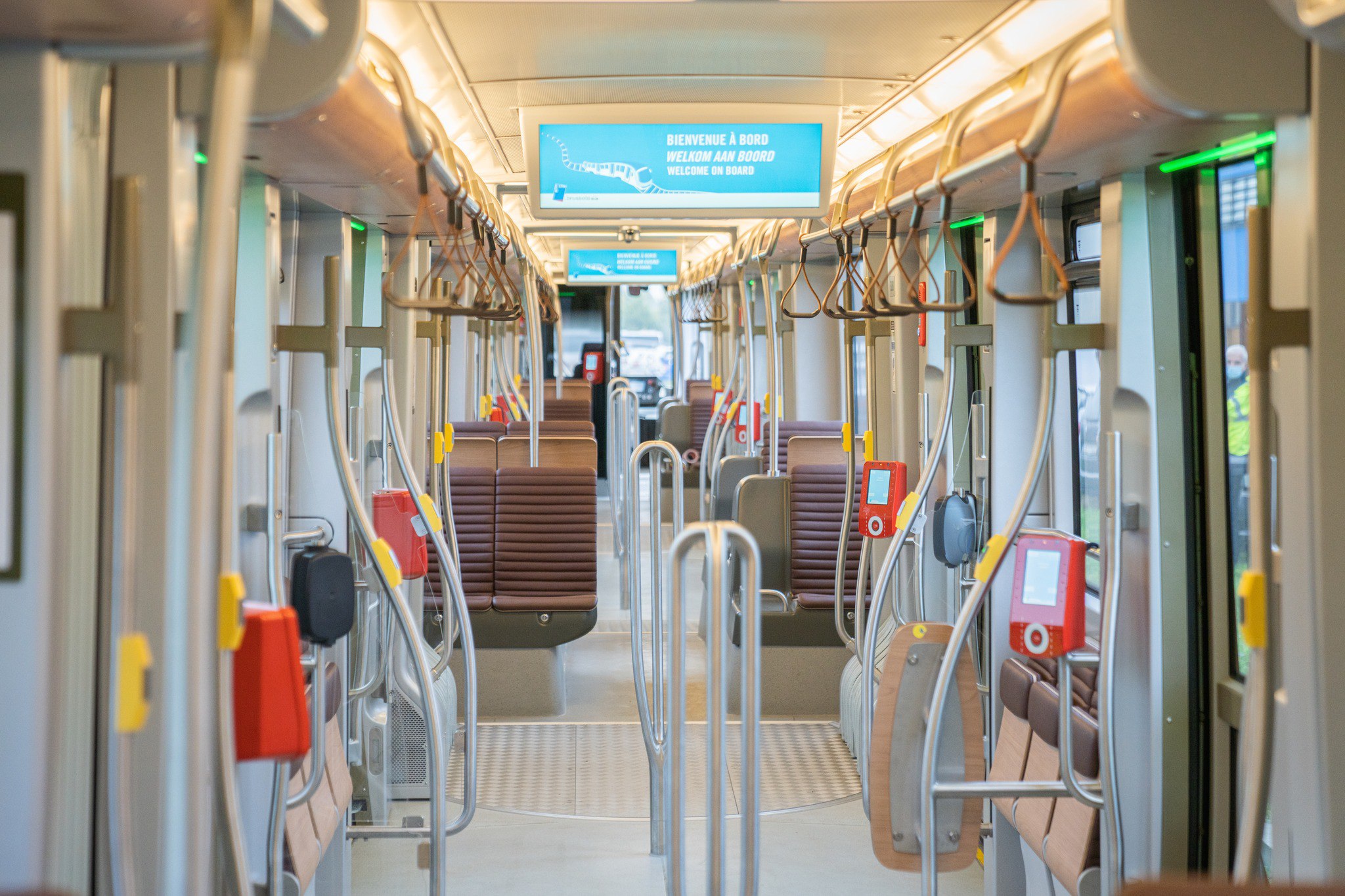 Inside the Flexity TNG tram by Alstom for Brussels. Source: STIB
Inside the Flexity TNG tram by Alstom for Brussels. Source: STIB
Shorter five-section trams with a length of 32 meters can accommodate 181 passengers, having 47 seats. Longer seven-section 43-meter trams have 255 seats, 65 of which are seated.
Art Nouveau style for the TNG tram was developed by Belgian designer Axel Enthoven from Yellow Window studio. It reminds the currently operating fleet in Brussels. Earlier the same studio made the design of new CAF metro cars for the M7 line of the Brussels Metro. At the request of Alstom, in 2022 it also created the interior and exterior of third-generation Translohr single-rail trams for Padua, Italy.
A framework contract to supply a maximum of 175 TNG trams worth up to €480 mln. It was signed between the Brussels operator STIB and Bombardier Transportation in 2018. Taking into account the option exercised in 2019, now the order includes 79 five-section and 11 seven-section vehicles for €236 mln. The delivery should be completed in April 2026. Some of the new cars will replace the old high-floor trams, while the rest will be used to expand the network. According to STIB CEO Brieuc de Meeûs, the introduction of new trams will allow increasing the number of passenger seats by 25% within 3 years.



